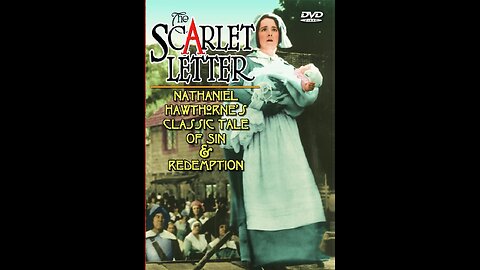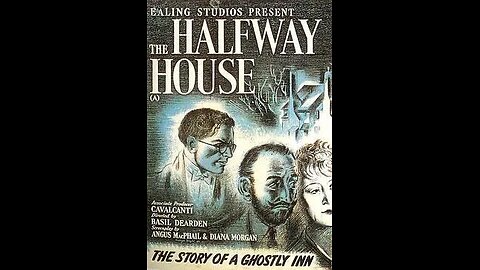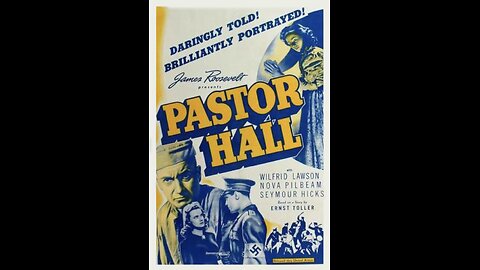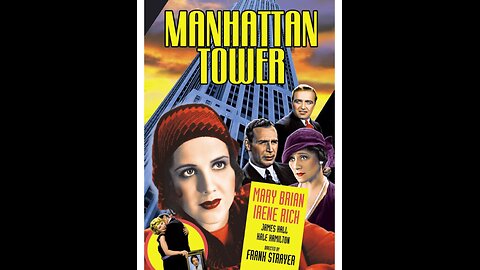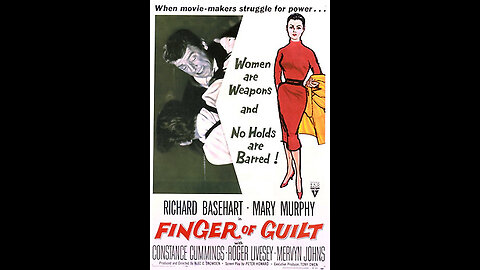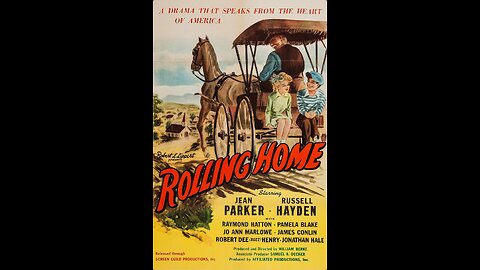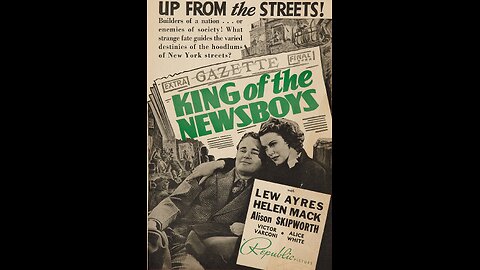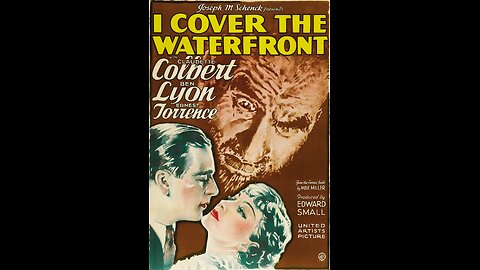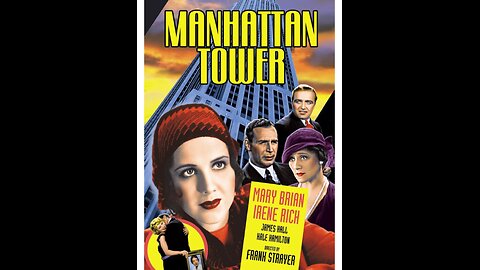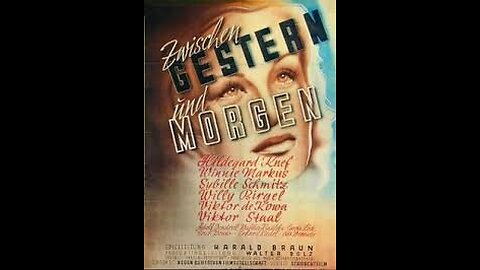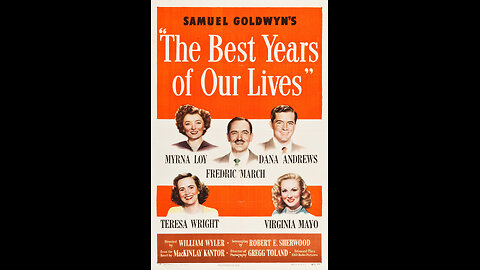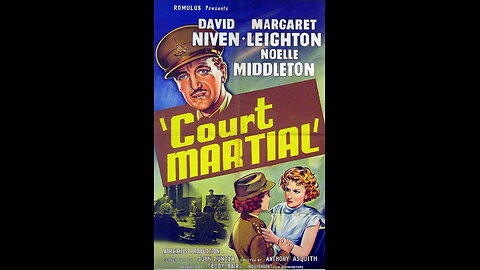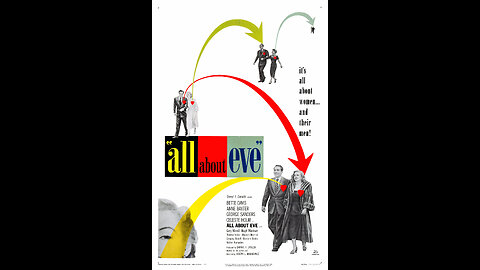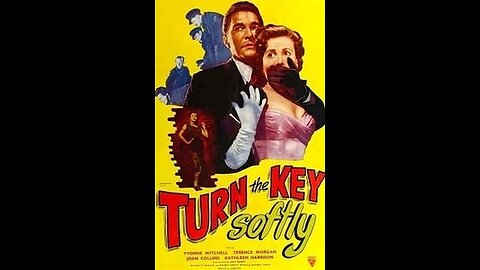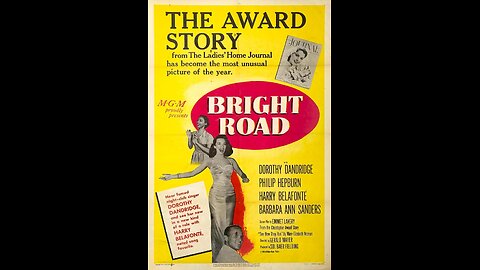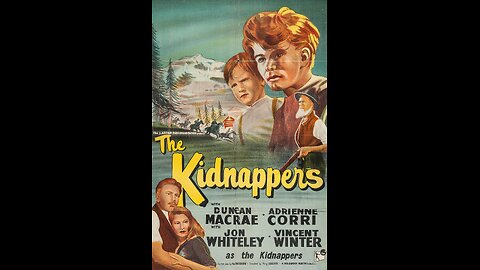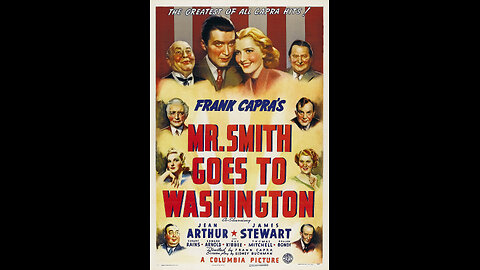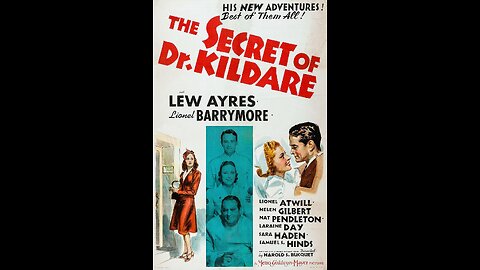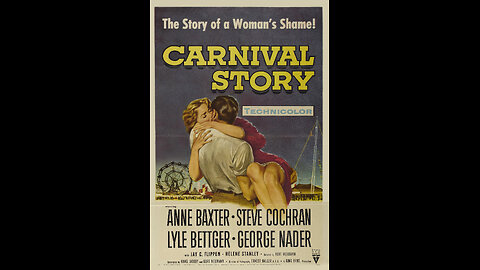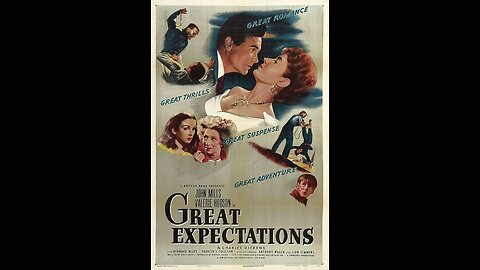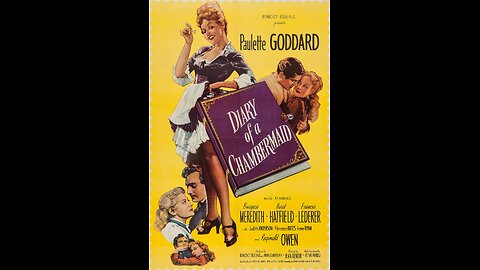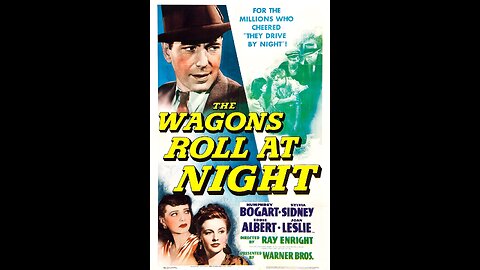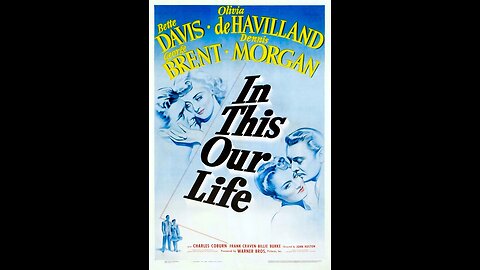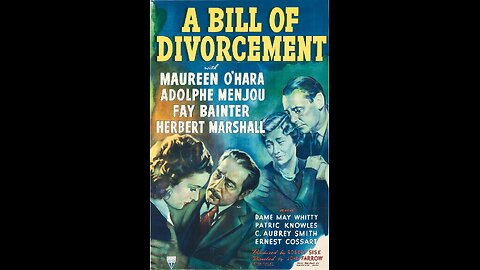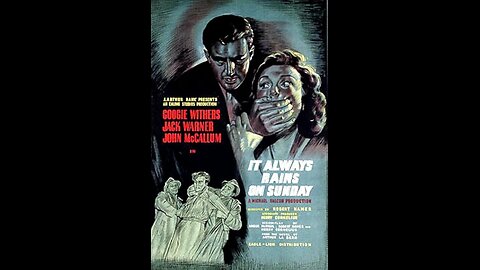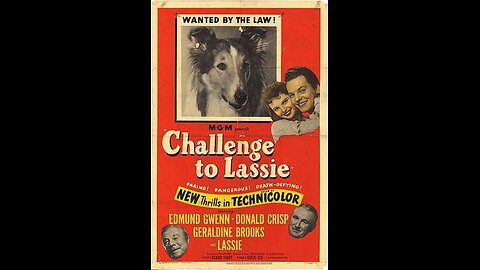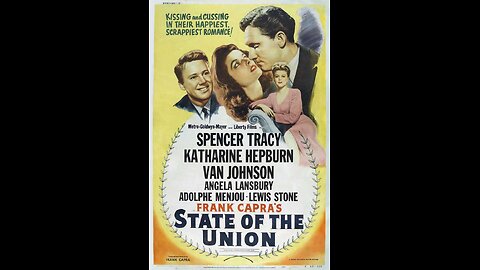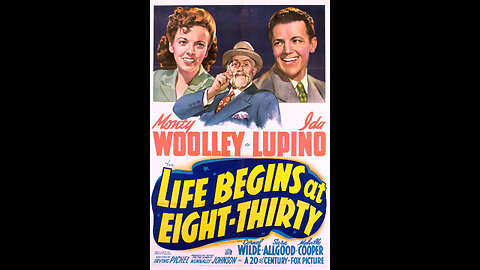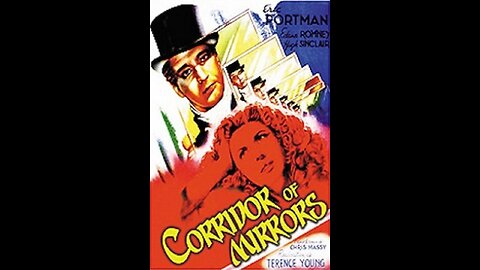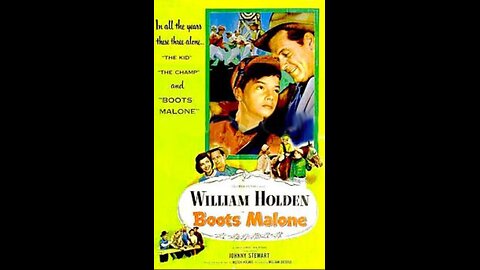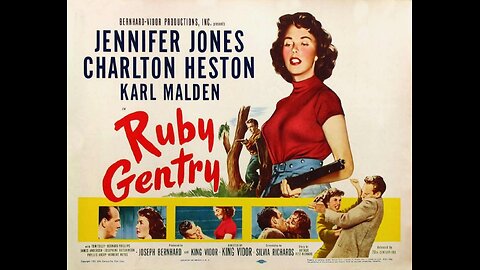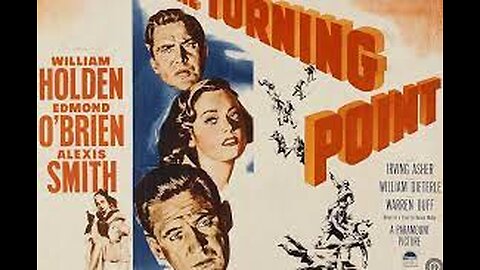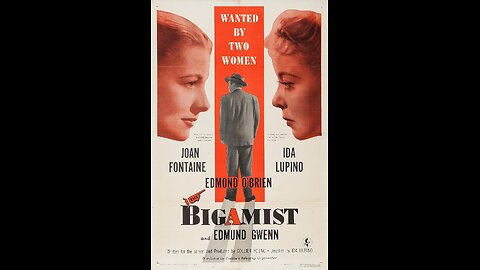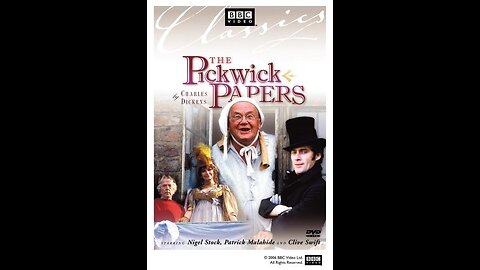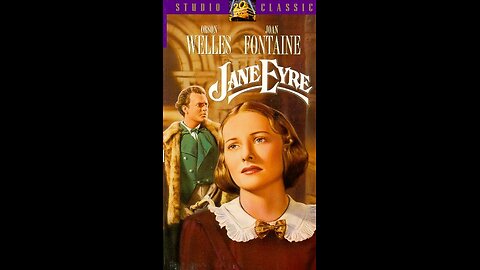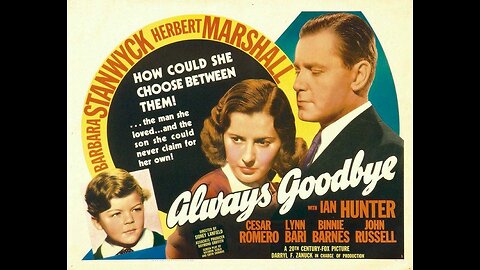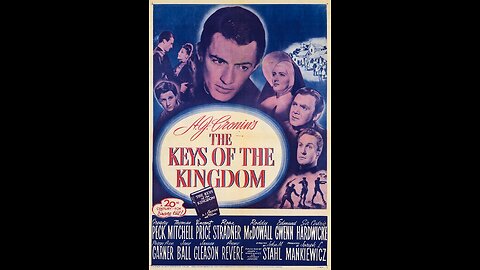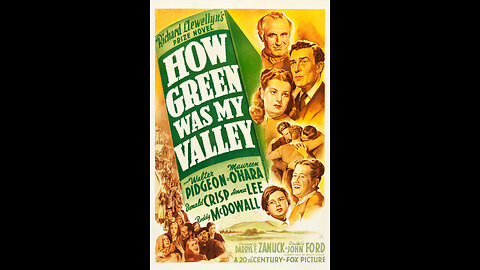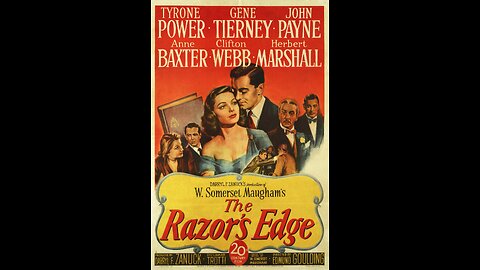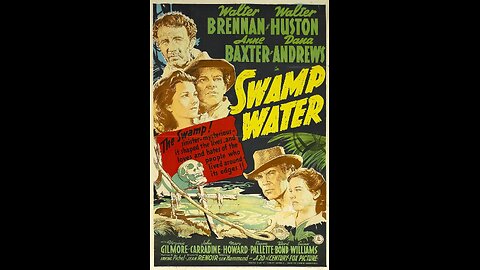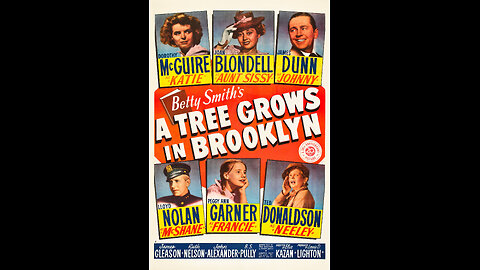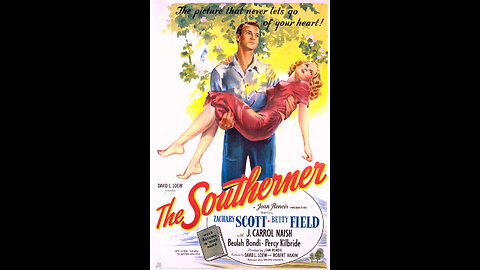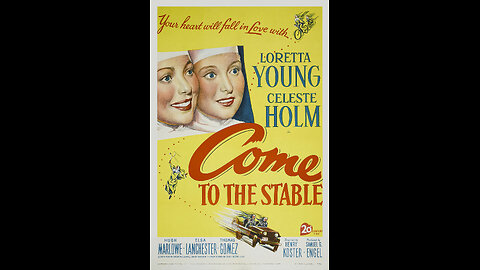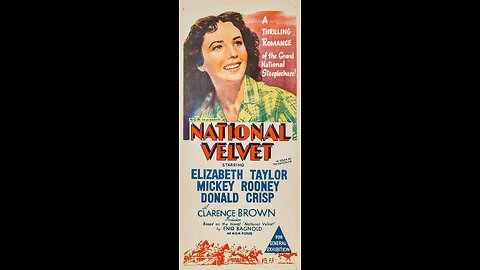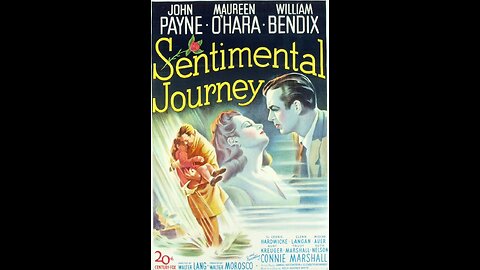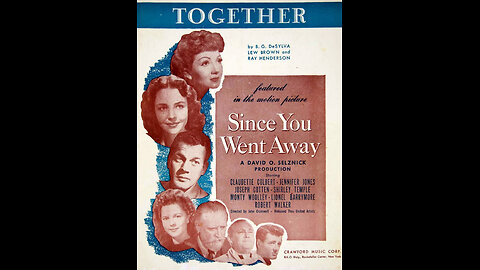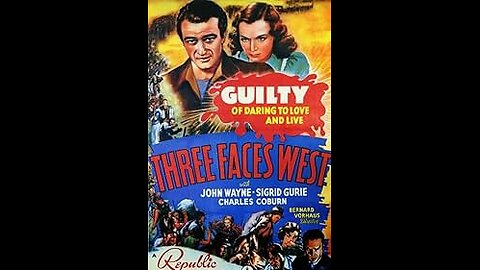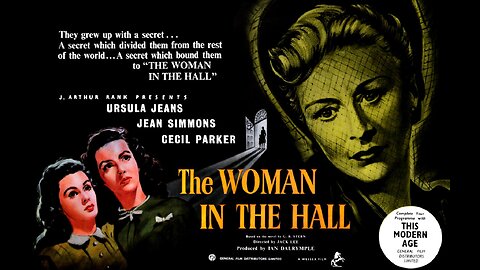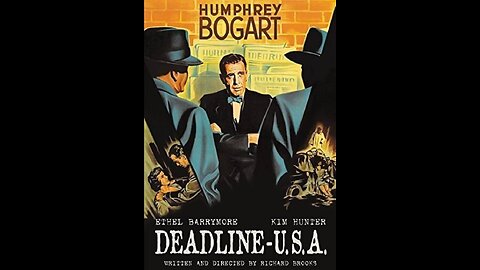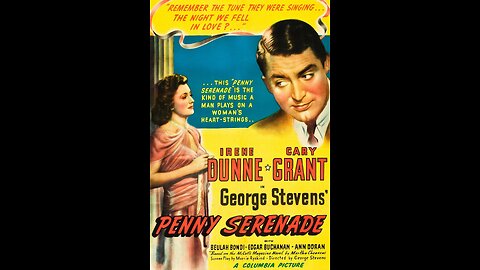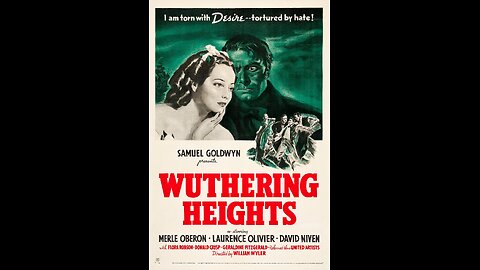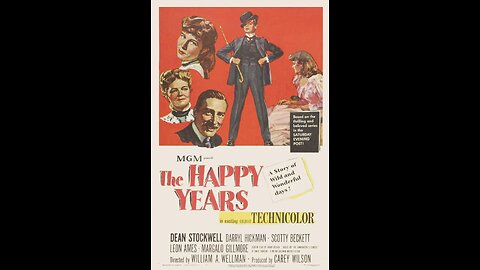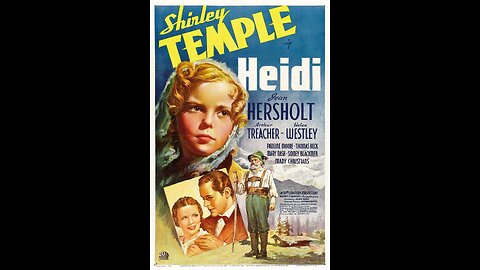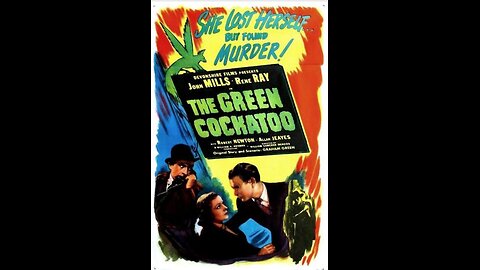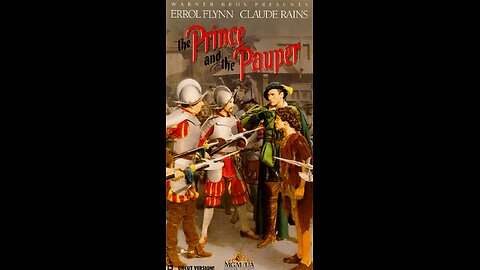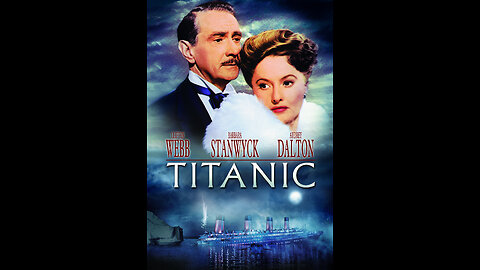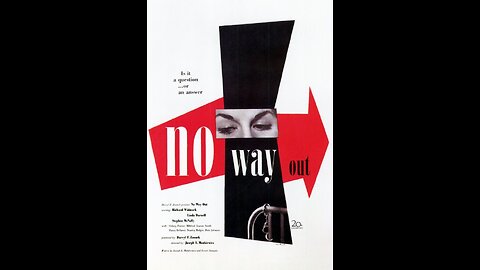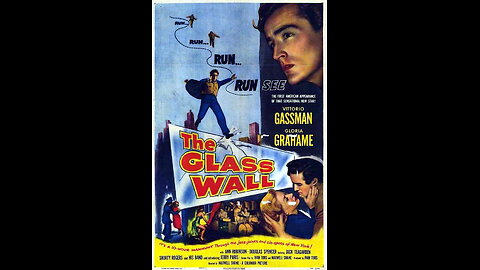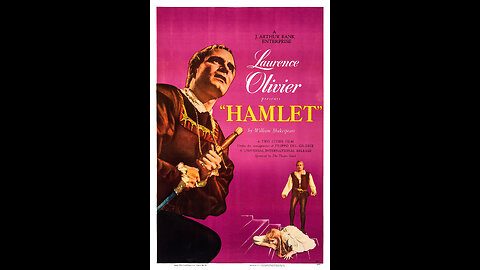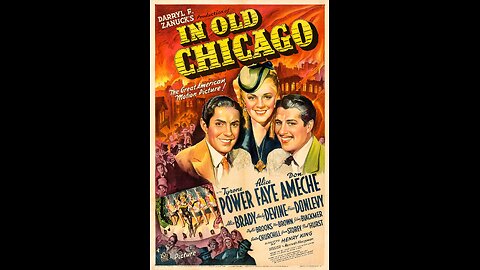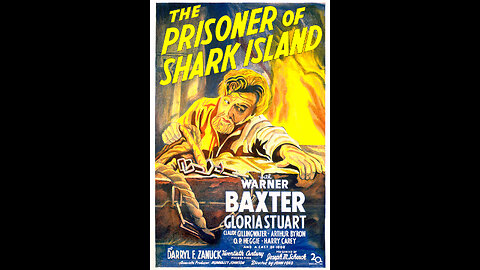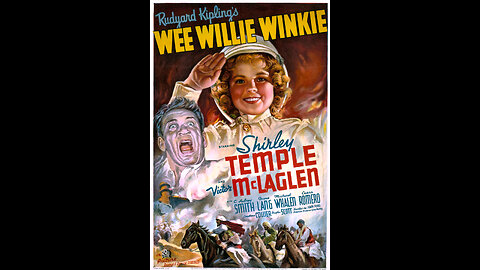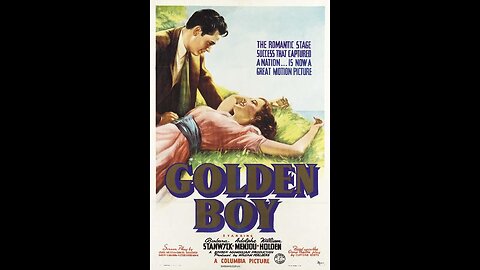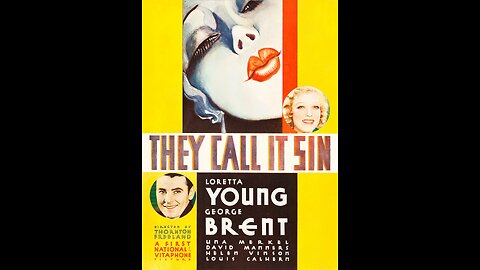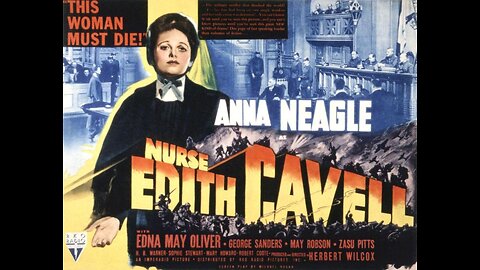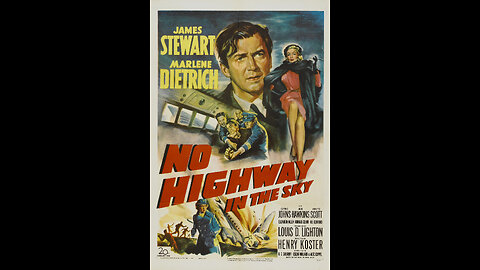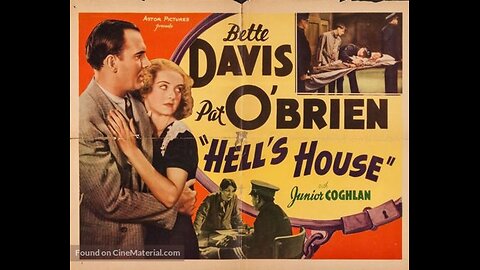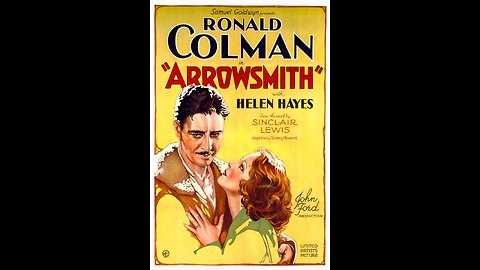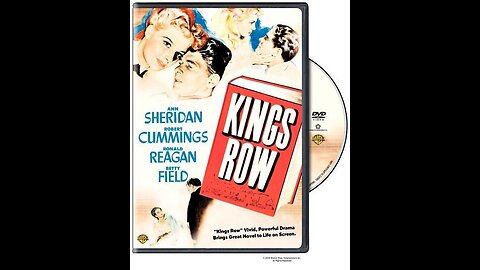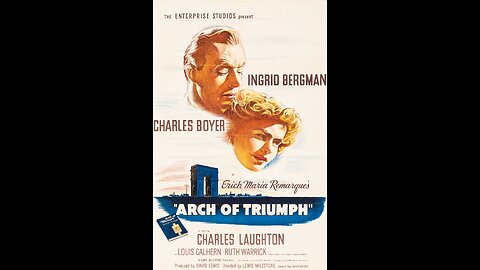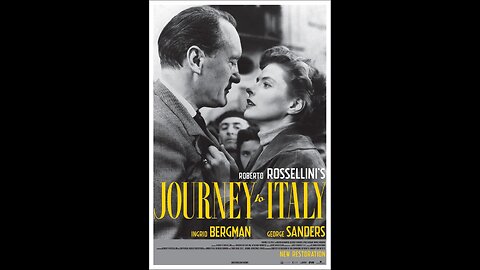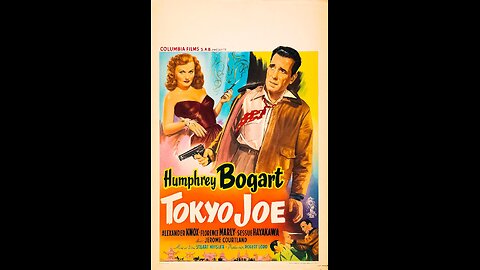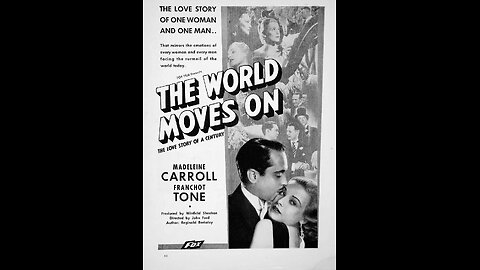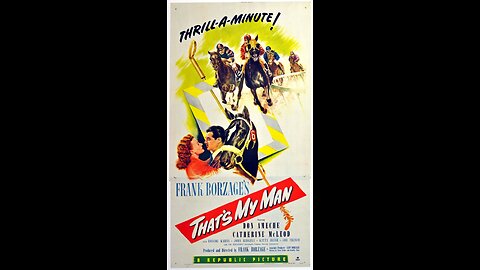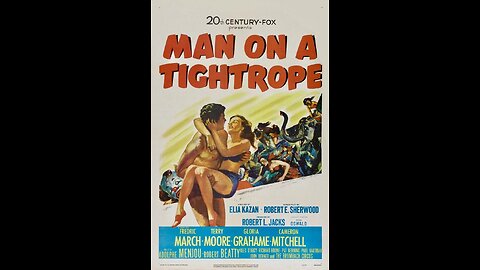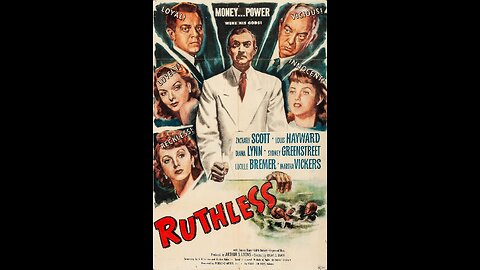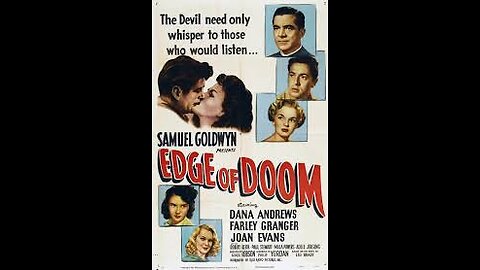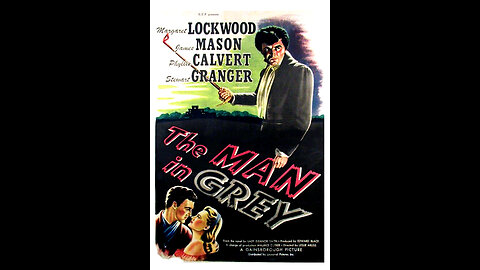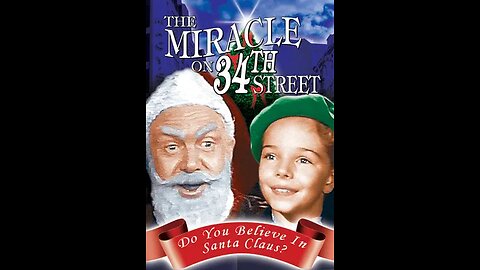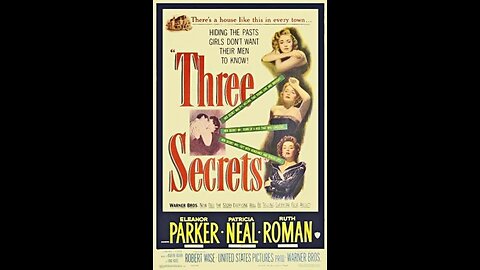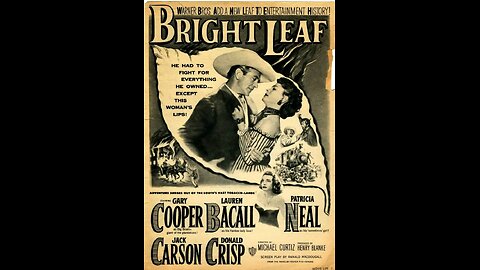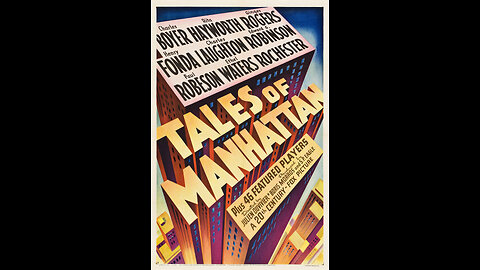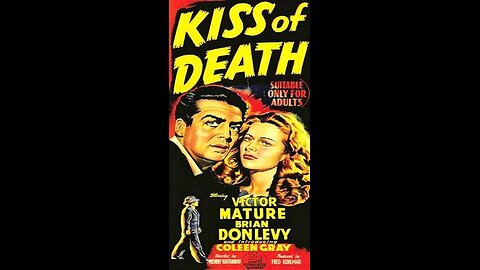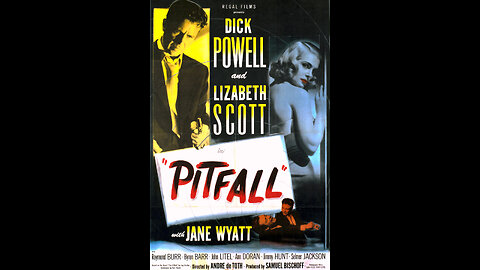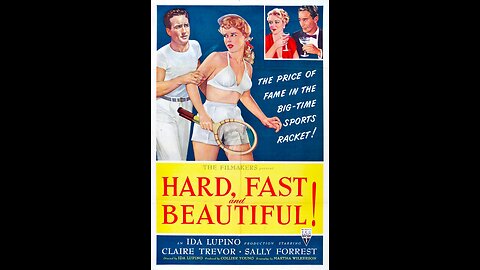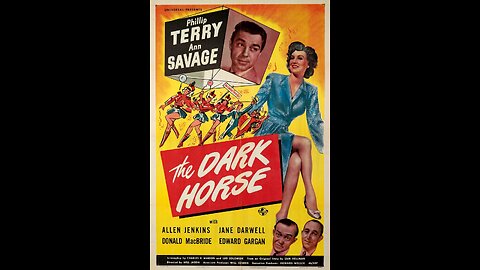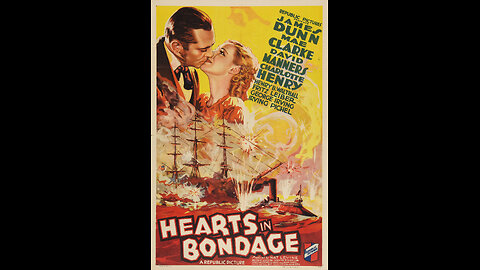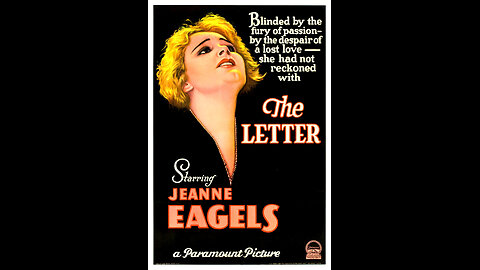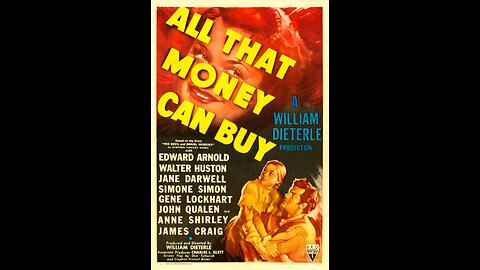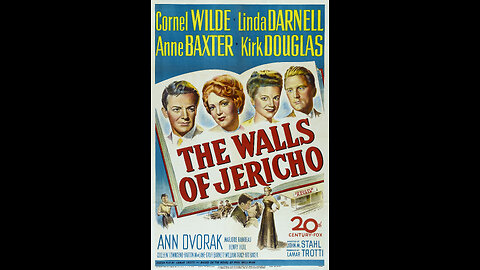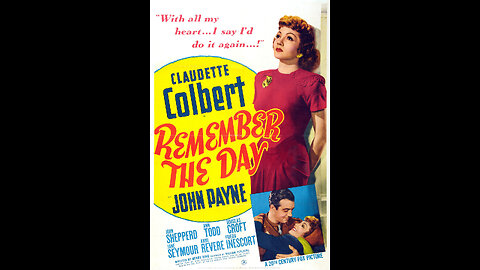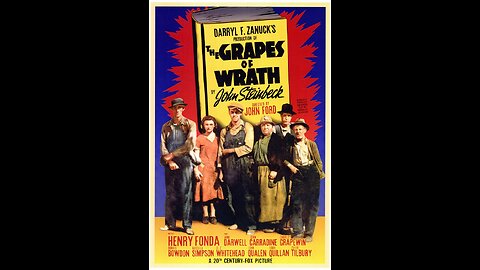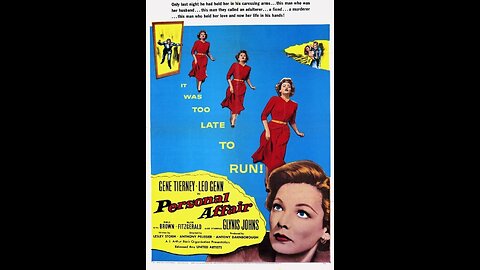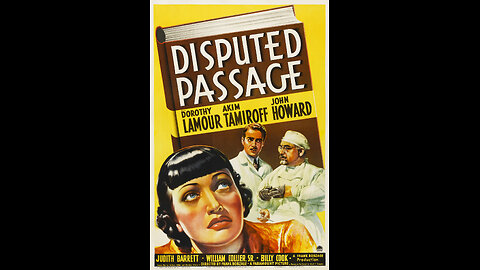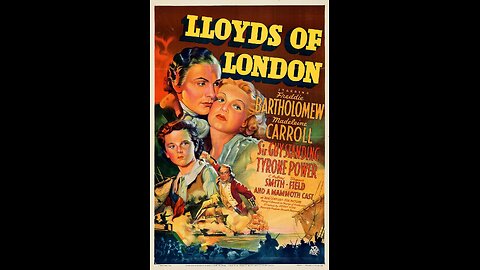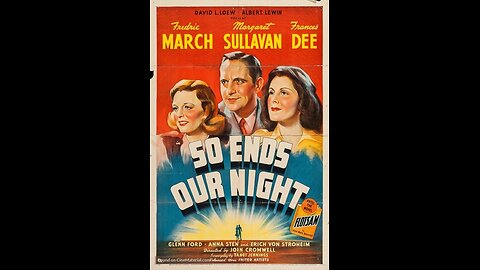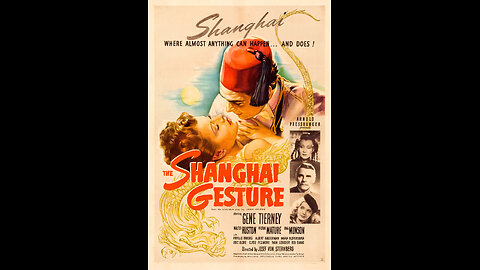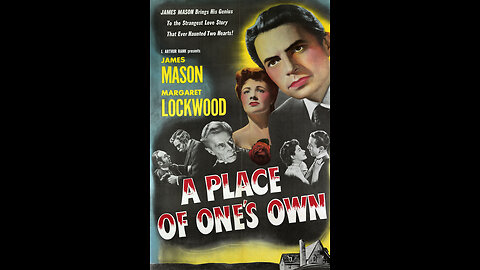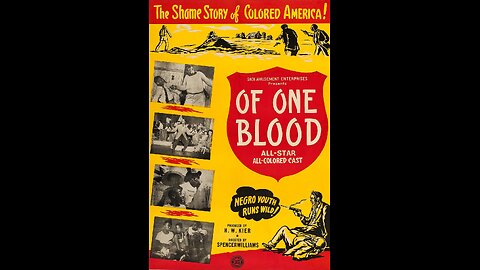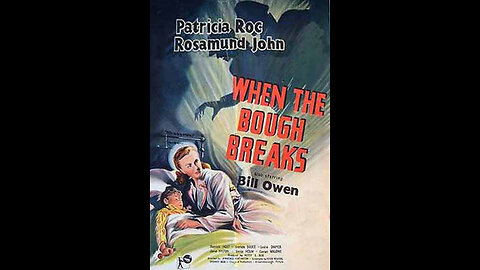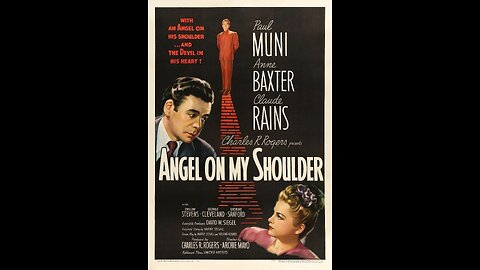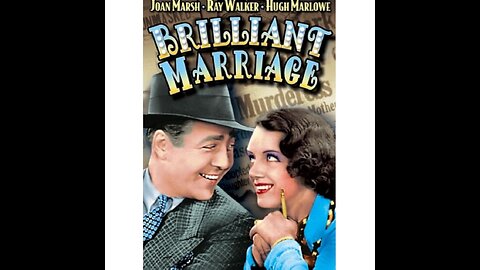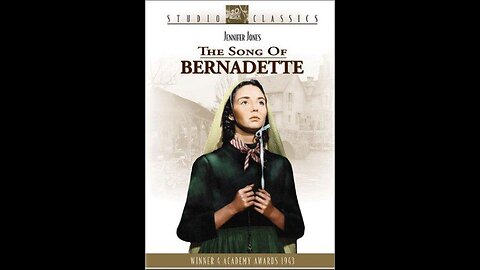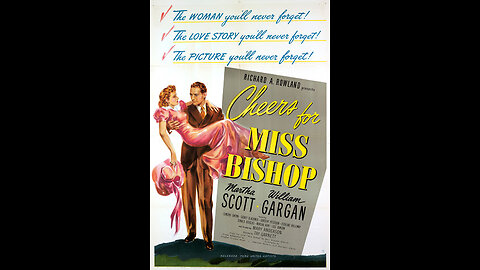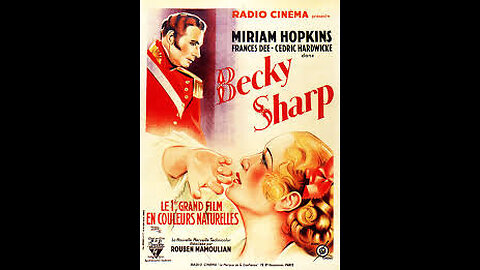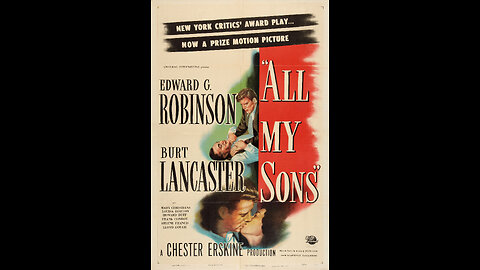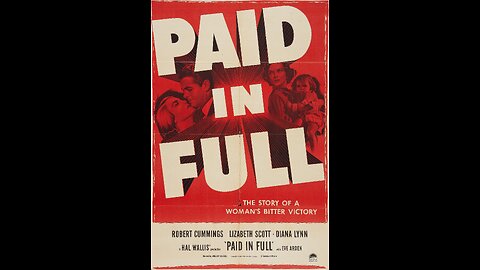Premium Only Content
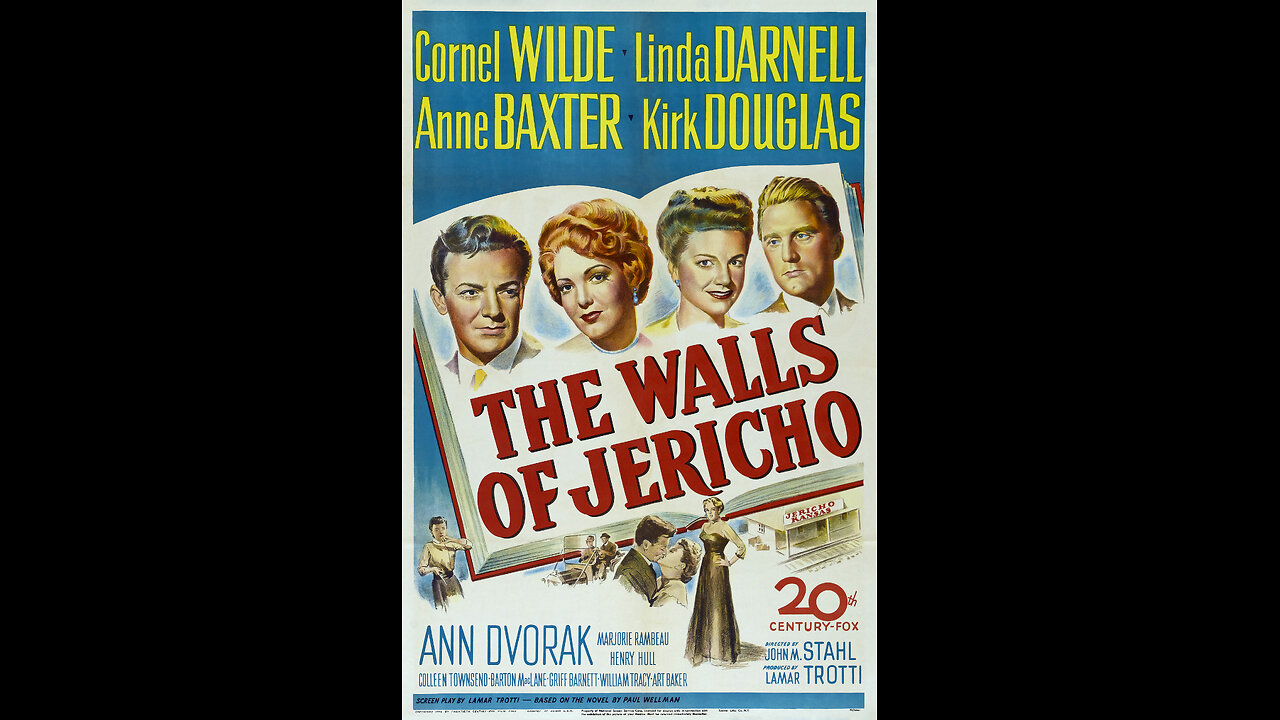
The Scarlet Letter (1934) | Directed by Robert G. Vignola
The Halfway House (1944) | Directed by Basil Dearden
Pastor Hall (1940) | Directed by Roy Boulting
Manhattan Tower (1932) | Directed by Frank R. Strayer
The Intimate Stranger (1956) | Directed by Joseph Losey
Rolling Home (1935) | Directed by William Berke
King of the Newsboys (1938) | Directed by Bernard Vorhaus
I Cover the Waterfront (1933) | Directed by James Cruze
Manhattan Tower (1932) | Directed by Frank R. Strayer
Between Yesterday and Tomorrow (1947) | Directed by Harald Braun
The Best Years of Our Lives (1946) | Directed by William Wyler
Court Martial / Carrington V.C. (1954) | Directed by Anthony Asquith
All About Eve (1950) | Directed by Joseph L. Mankiewicz
Turn the Key Softly (1953) | Directed by Jack Lee
Bright Road (1953) | Directed by Gerald Mayer
The Kidnappers (1953) | Directed by Philip Leacock
Mr. Smith Goes to Washington (1939) | Directed by Frank Capra
The Secret of Dr. Kildare (1939) | Directed by Harold S. Bucquet
Carnival Story (1954) | Directed by Kurt Neumann
Great Expectations (1946) | Directed by David Lean
The Diary of a Chambermaid (1946) | Directed by Jean Renoir
The Wagons Roll at Night (1941) | Directed by Ray Enright
The Wreck of the Hesperus (1948) | Directed by John Hoffman
In This Our Life (1942) | Directed by John Huston
A Bill of Divorcement (1940) | Directed by John Farrow
It Always Rains on Sundays (1947) | Directed by Robert Hamer
Challenge to Lassie (1949) | Directed by Richard Thorpe
State of the Union (1948) | Directed by Frank Capra
Life Begins at Eight-Thirty (1942) | Directed by Irving Pichel
Home Town Story (1951) | Directed by Arthur Pierson
Corridor of Mirrors (1948) | Directed by Terence Young
Boots Malone (1952) | Directed by William Dieterle
Ruby Gentry (1952) | Southern Gothic melodrama directed by King Vidor
Bad for Each Other (1953 ) | American drama film directed by Irving Rapper
Dragonwyck (1946) | A Gothic drama film directed by Joseph L. Mankiewicz
Oliver Twist (1948) | Directed by David Lean
The Turning Point (1952) | British drama film directed by Michael Relph
The Bigamist (1953) | American drama film directed by and starring Ida Lupino
The Bells of St. Mary's (1945) | American drama film directed by Leo McCarey
The Pickwick Papers (1952) | Directed by Noel Langley
Little Lord Fauntleroy (1936) | American drama film directed by John Cromwell
The Rains Came (1939) | American drama film directed by Clarence Brown
Jane Eyre (1943) : Director - Robert Stevenson
Always Goodbye (1938) | Directed by Sidney Lanfield
Molly and Me (1945) | Directed by Lewis Seiler
Pinky (1949) | Groundbreaking drama directed by Elia Kazan
The Keys of the Kingdom (1944) | Directed by John M. Stahl
How Green Was My Valley (1941) | Directed by John Ford
The Razor's Edge (1946) | Drama directed by Edmund Goulding
Swamp Water (1941) | A compelling drama directed by Jean Renoir
A Tree Grows in Brooklyn (1945) | Directed by Elia Kazan
The Southerner (1945) | Drama directed by Jean Renoir
Four in a Jeep (1951) | A drama film directed by Leopold Lindtberg
Come to the Stable (1949) | Directed by Henry Koster
National Velvet (1944) | Directed by Clarence Brown
Sentimental Journey (1946) | Directed by Walter Lang
Since You Went Away (1944) | American drama film directed by John Cromwell
"Three Faces West" (1940) | Directed by Bernard Vorhaus
The Green Promise (1949) | A family drama directed by William D. Russell
They Were Sisters (1945) | British drama film directed by Arthur Crabtree
The Woman in the Hall (1947) | British drama film directed by Jack Lee
Tobacco Road (1941) | Directed by John Ford
Lady for a Night (1942) | A captivating drama directed by Leigh Jason
Deadline USA (1952) | Directed by Richard Brooks
Penny Serenade (1941) | Directed by George Stevens
Wuthering Heights (1934) | Directed by William Wyler
The Little Princess (1939) | Directed by Walter Lang
The Happy Years (1950) | Directed by William A. Wellman
Heidi (1937) | Directed by Allan Dwan
The Green Cockatoo (1937) | British comedy directed by William Cameron Menzies
Now and Forever (1934) | Directed by Henry Hathaway
Leave Her to Heaven (1945) | Directed by John M. Stahl
The Prince and the Pauper (1937) | Directed by William Keighley
Beloved Enemy (1936) | Directed by H.C. Potter
Titanic (1953) | Directed by Jean Negulesco
No Way Out (1950) | Directed by Joseph L. Mankiewicz
The Adventures of Tom Sawyer (1938) | Directed by Norman Taurog
The Glass Wall (1953) | Directed by Maxwell Shane
Paula (1952) | Directed by Rudolph Maté
Cyrano de Bergerac (1950) | Directed by Michael Gordon
The Soldier and the Lady (1937) | Directed by George Nichols Jr.
Hamlet (1948) | Directed by Sir Laurence Olivier
The Seventh Veil (1945) | Directed by Compton Bennett
In Old Chicago (1937) | Directed by Henry King
The First of the Few (1942) / Spitfire | Directed by Leslie Howard
The Rocking Horse Winner (1949) | Directed by Anthony Pelissier
The Prisoner of Shark Island (1936) | Directed by John Ford
Wee Willie Winkie (1937) | Directed by John Ford
Golden Boy (1939) | Directed by Rouben Mamoulian
They Call It Sin (1932) | Directed by Thornton Freeland
A Letter to Three Wives (1949) | Directed by Joseph L. Mankiewicz
Nurse Edith Cavell (1939) | Directed by Herbert Wilcox
No Highway in the Sky (1951) | Directed by Henry Koster
Hell's House (1932) | Directed by Howard Higgin
Fourteen Hours (1951) | Directed by Henry Hathaway
The Little Foxes (1941) | Directed by William Wyler
The Bad Sister (1931) | Directed by Hobart Henley
The Fountainhead (1949) | Directed by King Vidor
Of Human Bondage (1934) | Directed by John Cromwell
Arrowsmith (1931) | Directed by John Ford
From Here to Eternity (1953) | Directed by Fred Zinnemann
Oliver Twist (1933) | Directed by William J. Cowen
King's Row (1942) | Directed by Sam Wood
Not Wanted (1949) | Directed by Elmer Clifton
Summer Storm (1944) | Directed by Douglas Sirk
Arch of Triumph (1948) | Directed by Lewis Milestone
Journey to Italy (1954) | Directed by Roberto Rossellini
Tokyo Joe (1949) | Directed by Stuart Heisler
The World Moves On (1934) | Directed by John Ford
That's My Man (1947) | Directed by Frank Borzage
Brute Force (1947) | Directed by Jules Dassin
Wicked Woman (1953) | Directed by Russell Rouse
Lifeboat (1944) | Directed by Alfred Hitchcock
21 Days (1940) | Directed by Basil Dean
The President's Lady (1953) | A captivating historical drama
I Was a Shoplifter (1950) | A film noir crime drama directed by Charles Lamont
Man on a Tightrope (1953) | A gripping drama directed by the renowned Elia Kazan
The Baron of Arizona (1950) | Historical drama directed by Samuel Fuller
The Long Memory (1953) | Directed by Robert Hamer
Ruthless (1948) | Directed by Edgar G. Ulmer
Edge of Doom (1950) | Directed by Mark Robson
Man in Grey (1943) | Directed by Leslie Arliss
Miracle on 34th Street (1947) | Directed by George Seaton
Three Secrets (1950) | Directed by Robert Wise
Bright Leaf (1950) | Directed by Michael Curtiz
Tales of Manhattan (1942) | Directed by Julien Duvivier
The Wild One (1953) | Directed by László Benedek
The Prowler (1951) | Directed by Joseph Losey
Kiss of Death (1947) | Directed by Henry Hathaway
Pitfall (1948) | Directed by André de Toth
Hard, Fast and Beautiful! (1951) | Directed by Ida Lupino
The Dark Horse (1946) | Directed by Delmer Daves
Hearts in Bondage (1936) | Directed by Lew Ayres
The Letter (1929) | Directed by Jean de Limur
All That Money Can Buy (aka The Devil and Daniel Webster) (1941) | Directed by William Dieterle
The Walls of Jericho (1948) | Directed by John M. Stahl
Remember the Day (1941) | Directed by Henry King
The Grapes of Wrath (1940) | Directed by John Ford
The Moon is Down (1943) | Directed by Irving Pichel
Beyond Tomorrow (1940) | Directed by A. Edward Sutherland
Personal Affair (1953) | Directed by Anthony Pelissier
Under My Skin (1950) | Directed by Jean Negulesco
Serpent of the Nile (1953) | Directed by William Castle
Black Narcissus (1947) | Directed by Michael Powell & Emeric Pressburger
The Last Command (1928) | Directed by Josef von Sternberg
Deep Waters (1948) | Directed by Henry King
Disputed Passage (1939) | Directed by Frank Borzage
Little Men (1940) | Directed by Norman Z. McLeod
The Old Swimmin' Hole (1940) | Directed by Robert F. McGowan
The Weaker Sex (1948) | Directed by Roy Ward Baker
Lloyd's of London (1936) | Directed by Henry King
So Ends Our Night (1941) | Directed by John Cromwell
The Shanghai Gesture (1941) | Directed by Josef von Sternberg
This Happy Breed (1944) | Directed by David Lean
A Place of One's Own (1945) | Directed by Bernard Knowles
Little Man, What Now? (1934) | Directed by Frank Borzage
Of One Blood (1944) | Directed by Spencer Williams
When the Bough Breaks (1947) | Directed by Lawrence Huntington
Angel on My Shoulder (1946) | Directed by Archie Mayo
Brilliant Marriage" (1936) | Directed by Phil Rosen
The Song of Bernadette (1943) | Directed by Henry King
Cheers for Miss Bishop (1941) | Directed by Tay Garnett
Becky Sharp (1935) | Directed by Rouben Mamoulian
All My Sons (1948) | Directed by Irving Reis
Paid in Full (1950) | Directed by William Dieterle
The Walls of Jericho (1948) | Directed by John M. Stahl
"The Walls of Jericho" is an American drama film released in 1948, directed by John M. Stahl, a filmmaker known for his work in melodramas and for guiding actors to deliver compelling performances. This movie diverges from the biblical tale its title might evoke, instead offering a narrative steeped in the social and political intrigues of a small town in Kansas right after World War I.
The film weaves a complex story around Dave Connors (played by Cornel Wilde), an attorney with political aspirations, who finds himself entangled in a web of personal and professional dilemmas. His marriage to Belle (played by Ann Dvorak) is strained and unfulfilling, leading him to seek solace in the company of the more intellectually compatible Julia Norman (played by Linda Darnell), the wife of his best friend. The plot thickens with the introduction of Tucker Wedge (played by Kirk Douglas), a manipulative politician who aims to use Dave's ambitions for his own gain. The narrative delves into themes of ambition, morality, and the personal cost of political success, set against the backdrop of the American South's social dynamics during the post-war era.
"The Walls of Jericho" is notable for its exploration of complex characters and moral ambiguity, a hallmark of director John M. Stahl's filmography. The performances are strong, particularly those of Cornel Wilde and Linda Darnell, who bring depth and nuance to their roles. Kirk Douglas, in one of his early roles, showcases the intensity and charisma that would define his career. The film's portrayal of the intricate relationships and social structures within a small town is both engaging and thought-provoking, offering a slice of Americana through the lens of drama and intrigue.
The production values of the film, including its set design and cinematography, effectively recreate the era and setting, immersing the viewer in the post-war American South. The screenplay, adapted from the novel by Paul Wellman, balances the personal dramas with broader social commentary, though at times it veers towards melodrama.
While "The Walls of Jericho" delivers in terms of performance and production, it suffers from some pacing issues, with a narrative that sometimes feels uneven or overly complex. Modern audiences might find certain elements of the story and characterizations dated, particularly in its treatment of gender roles and relationships. The film's attempt to tackle too many themes at once can also lead to a lack of focus, diluting the impact of its more potent moments.
Additionally, the film's resolution might feel unsatisfying to some, as it wraps up complex moral and ethical dilemmas in a somewhat conventional manner, not fully exploring the ramifications of the characters' actions. This might reflect the filmmaking conventions of the era more than a specific shortcoming of the film itself.
Released in 1948 and directed by John M. Stahl, "The Walls of Jericho" stands as a compelling drama that captures the complexities of human relationships and societal pressures. With a talented cast including Cornel Wilde, Linda Darnell, Ann Dvorak, and Kirk Douglas, the film offers strong performances and a thought-provoking narrative. Despite its pacing and thematic issues, it remains an interesting piece of cinema from the post-war era, reflecting the moral and social questions of its time.
-
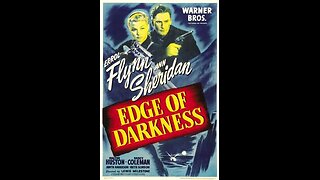 2:00:33
2:00:33
Classic Films & Movies Archive
1 day agoEdge of Darkness (1943) | Directed by Lewis Milestone
142 -
 LIVE
LIVE
Side Scrollers Podcast
3 hours agoVoice Actor VIRTUE SIGNAL at Award Show + Craig’s HORRIBLE Take + More | Side Scrollers
624 watching -
 1:59:21
1:59:21
The Charlie Kirk Show
2 hours agoCreeping Islamization + What Is An American? + AMA | Sedra, Hammer | 11.21.2025
24.7K17 -
 1:08:27
1:08:27
Sean Unpaved
2 hours agoWill Caleb Williams & Bears WIN The NFC North? | UNPAVED
3.08K -
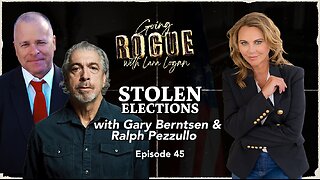 LIVE
LIVE
Lara Logan
4 hours agoSTOLEN ELECTIONS with Gary Berntsen & Ralph Pezzullo | Ep 45 | Going Rogue with Lara Logan
508 watching -
 1:47:18
1:47:18
Steven Crowder
4 hours agoTo Execute or Not to Execute: Trump Flips the Dems Sedition Playbook Back at Them
246K276 -
 16:11
16:11
RealMetatron
20 hours agoHasan Piker got HUMBLED in New York
7.43K5 -
 LIVE
LIVE
Viss
3 hours ago🔴LIVE - Helping Those That Need It Today - Arc Raiders!
188 watching -
 43:37
43:37
The Rubin Report
3 hours agoTriggernometry Hosts Try to Hide Their Shock at Sam Harris’ Charlie Kirk Claim
29.7K28 -
 LIVE
LIVE
SOLTEKGG
2 hours ago🟢 Live: Pro Player Returns to Battlefield 6 RED SEC
53 watching
